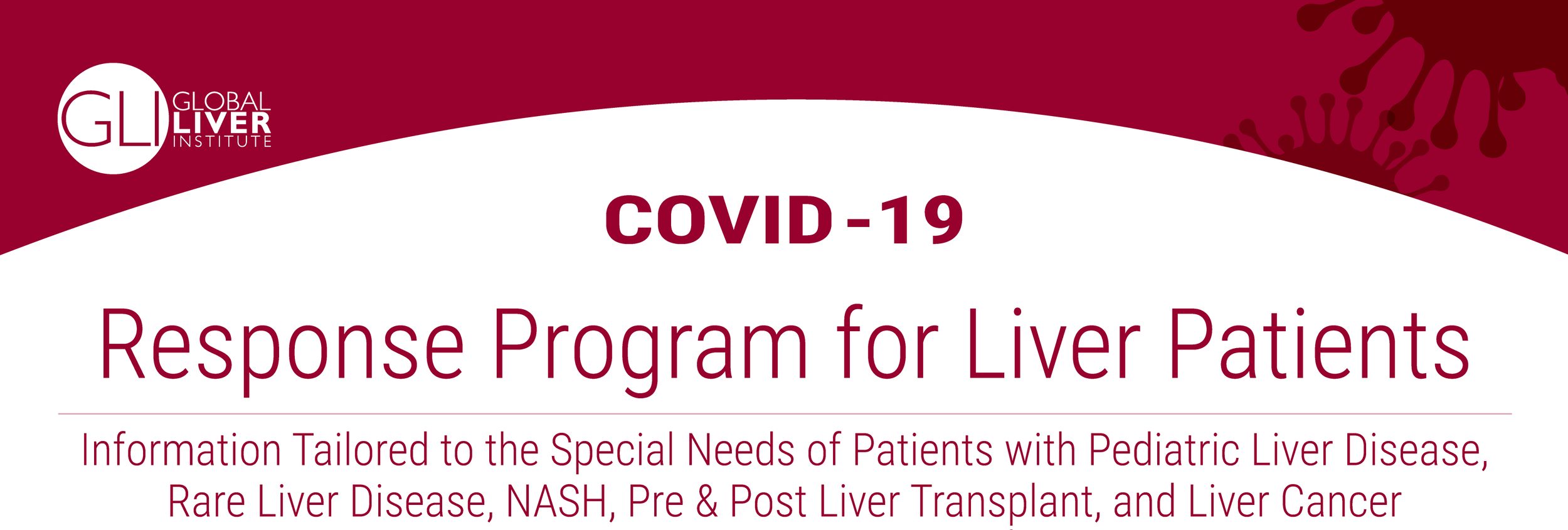
With COVID-19 being a major focus of budgets and funding allocations, it is essential that we understand how liver disease fits into that equation and what we can expect from it in the future.
Health Policy Changes
Health policies and priorities have drastically changed in 2020 due to the COVID-19 pandemic. In the federal budget for Fiscal Year 2020, many of the health policy priorities included topics such as the legal age to purchase tobacco products, funding for HIV programs, promoting generic drugs, and extending Medicaid funding to U.S. territories. With the sweeping effects of COVID-19 across the country in February and March, the priorities of health policy changed dramatically and Congress took significant action. Former health policy goals have shifted to understanding this virus and finding ways to keep everyone healthy. With the passing of the CARES Act in March and the upcoming stimulus package, there has been a push to provide funding to help keep Americans and the economy afloat, and to the medical field to combat COVID-19.
Throughout the spring, Congress passed other bills that provided medical funding, including supporting hospitals, increasing testing capabilities, and supporting research. In early March, a bill that provided $8.3 billion for emergency medical funding to address COVID-19 specifically was passed. $5 billion of that legislation went directly to the CDC and National Institutes of Health (NIH) to assist with their responses and medical research needed for COVID-19. The Paycheck Protection Program and Healthcare Enhancement Act also provided $75 billion for hospital emergency relief and $25 billion for testing efforts.
Going Forward
With COVID-19 remaining a constant presence, additional support for the medical community and medical research efforts remains necessary. But it is still essential that medical funding continues to go to non-COVID-19 research as other health issues continue to impact millions of Americans? The upcoming legislation being debated in Congress is aiming to provide some of that much needed medical funding. The stimulus package that is being pushed by the U.S. Senate would provide $15.5 billion to the NIH. The bill also is proposing $16 billion more for testing and $20 billion for vaccine development. Additional Medicaid funding is not included in the package, despite the calls by governors to provide some.
How does this impact liver research and patients?
Medical funding is essential for obtaining new knowledge and for the development of liver disease treatments. Not only is funding necessary for organizations like the NIH, but also for hospitals that provide lifesaving liver care. Without additional funding, government agencies like the National Institute of Diabetes and Digestive and Kidney Diseases (NIDDK), the agency that covers a majority of the federal liver disease research, will not have the capacity to continue existing research projects and undertake new research on COVID-related comorbidities that will be critical both for disease mitigation and the development of effective treatments and vaccines. Despite the necessary international attention focused on treatments and vaccines for COVID-19, liver disease cannot fall through the cracks. With the previous federal stimulus packages and bills, some emergency funding has gone to hospitals and research, but until the currently debated Senate supplemental appropriations bill (S.4320), no funds had been earmarked explicitly for priorities like liver disease medical research. The funds allocated within this newly introduced package would be broken down and distributed into the various subsections of NIH, including $200 million to the National Institute of Diabetes and Digestive and Kidney Diseases which includes liver research. These allocated funds were close to the amount requested by the Director of the NIH, Dr. Francis Collins, with there being funds allocated to pre-pandemic research. Representatives Katherine Clark (D-MA) and John Moolenaar (R-MI) recently circulated a “Dear Colleague” encouraging their fellow House members to join them in sending a letter supporting the $15.5 billion in the Senate package for NIH grant supplements needed to restart critical research disrupted by COVID-19. GLI has collaborated with many other organizations to press Congress to include this vital provision within their next COVID response package.
You can join GLI and urge your Representative to champion medical progress and research by signing onto this letter. GLI hopes that these funds can both accelerate efforts to address the current pandemic and also resume critical pre-pandemic research on liver disease.
Why This Matters
Increased medical funding is essential. Many basic and necessary health issues cannot be addressed without it. Those include:
- Medical Research – Research is very important in making advancements in liver diseases as well as COVID-19. Appropriate funding allows research that had been neglected during the pandemic to be revamped.
- COVID-19 Testing – Testing for COVID-19 remains difficult across the country with states and lab facilities not having enough resources available to test and distribute results in a timely and effective manner. Adequate testing is necessary for understanding the spread and impact, as well as in reopening the country.
- Hospital Capacity – With hospital systems across the country having been, or becoming, overwhelmed with COVID-19 patients, they are struggling to implement the basic needs of a hospital. With nurses, doctors, and other essential medical staff being overworked, a lack of PPE, running out of physical space for patients, and not having the normal revenue source from elective surgeries, hospitals need funding. They cannot do their lifesaving work without it.
- Vaccine Development – As a society, we will be unable to return to any sense of long term normalcy without an effective vaccine against COVID-19. Having appropriate funding allocated to this essential research will help protect the health of everyone, but particularly those at a higher risk like liver patients.
- Pre-Pandemic Priorities – Prior to COVID-19, the federal budget had outlined a variety of health priorities that it was aiming to focus on. Additional funding would allow those priorities to be revisited and prioritized. This would ensure that the U.S. is not falling behind in other health crises that had to be set aside when COVID-19 hit.
COVID-19 drastically altered the health world throughout 2020. It has disrupted our daily lives, as well as things that we may not directly see every day. Medical funding is an essential component of our daily lives that we do not always see, but we would be crippled without it. With the proposed stimulus package, GLI hopes that medical funding will be revamped to help researchers and healthcare professionals continue to provide lifesaving care to liver patients.
Stay safe, well, and connected.
Sincerely,

Donna R. Cryer
Founder & CEO
Liver Transplant 1994 Johns Hopkins
Featured GLI LIVE Episodes


